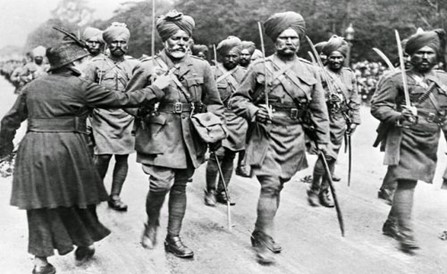Recent context:
- French President Macron has been invited to the Republic Day parade of India.
- After this invitation, France becomes the most invited country on Republic Day. This was the 6th invitation to a French leader.

Key Areas of Cooperation:
Partnership for Security and Sovereignty between the India-France
- Defense: India-France will continue its cooperation on fighter jets and submarines. They have successfully delivered 36 Rafale jets to the Indian Air Force and completed the P75 program for six Scorpene submarines.
- Space: The scientific and commercial partnership between France’s CNES and India’s ISRO is being strengthened. They are collaborating on reusable launchers, the TRISHNA Earth observation satellite, a constellation of maritime surveillance satellites in the Indian Ocean, and protecting satellites from collisions in orbit.
- Civil nuclear energy: Both countries are making progress on the 6-EPR power plant project in Jaitapur. They will also cooperate on small modular reactors and advanced modular reactors.
- Indo-Pacific: A roadmap is being adopted for joint actions in the Indo-Pacific, covering various aspects of their comprehensive strategy for the region. They are also working on an Indo-French development fund for sustainable development projects in the Indo-Pacific.
- Counter-terrorism: France’s GIGN and India’s National Security Guard are strengthening their cooperation.
- Critical technology: Cooperation in cutting-edge digital technology, including supercomputing, cloud computing, artificial intelligence, and quantum computing. Atos and the Ministry of Earth Sciences of India have agreed on the supply of supercomputers.
- Civil aviation: Agreements are being signed in the field of civil aviation to support the expansion of routes between France and India and the growth of the Indian civil aviation market.
Partnership for the Planet and Global Issues between India & France
- Plastic pollution: India-France is committed to adopting an international treaty to end plastic pollution.
- Health: A Letter of Intent is signed to enhance cooperation in hospitals, medical research, digital technology, biotechnology, public health, and combating microbial resistance.
- Blue economy: A partnership is launched between IFREMER and India’s NIOT for ocean research.
- Financing the energy transition: Funding is announced for sustainable city programs, clean energy projects, and microfinance initiatives in rural India.
- Decarbonized hydrogen: A partnership is formed between McPhy and L&T for manufacturing electrolyzers in India.
Partnership for People between India & France
- Student Mobility: The goal is to welcome 30,000 Indian students in France by 2030. Visa facilitation and increased resources for the Campus France network are announced.
- Diplomatic and Consular Network: Opening of a Consulate General of India in Marseille and a Bureau de France in Hyderabad.
- Culture: France is selected as India’s partner for establishing a new National Museum in New Delhi. Content exchange and co-production agreements are signed between France Médias Monde and Prasar Bharati.
- Research: Increased funding is allocated to the Indo-French Centre for the Promotion of Advanced Research (IFCPAR/CEFIPRA) for joint projects.
- Sports: Cooperation in the field of sports is structured, especially for upcoming major sporting events.
- Civil Society: The aim is to double the number of international volunteers in India and France by 2025, focusing on solidarity and civil service.
What are the Challenges in India-France Relations?
While India & France enjoy a strategic partnership, there are some challenges that they face in their bilateral relations. Some of these challenges include:
- Geographical Distance: India and France are geographically distant from each other, which can pose logistical challenges in terms of communication, coordination, and the implementation of joint projects.
- Cultural Differences: India-France has different cultural backgrounds, languages, and societal norms. These differences can sometimes lead to misunderstandings or miscommunication, making it important for both countries to bridge the cultural gap and promote cultural exchange and understanding.
- Trade Imbalances: The trade balance between India and France is skewed, with India having a trade deficit. Addressing this imbalance and promoting balanced trade relations is an ongoing challenge.
- Economic Reforms: India’s economic reforms and regulatory environment can sometimes present challenges for foreign businesses, including those from France. Addressing these issues and creating a more conducive business environment is crucial for further economic cooperation.
- Strategic Alignment: While India & France share common interests in areas such as climate change, maritime security, and multilateralism, there may be differences in strategic priorities and approaches. Aligning their strategies and finding common ground can be a challenge in certain areas.
- Regional Dynamics: Both India & France have their respective regional interests and engagements, which can sometimes create diverging priorities. Balancing regional dynamics and finding ways to align their interests can be challenging.


